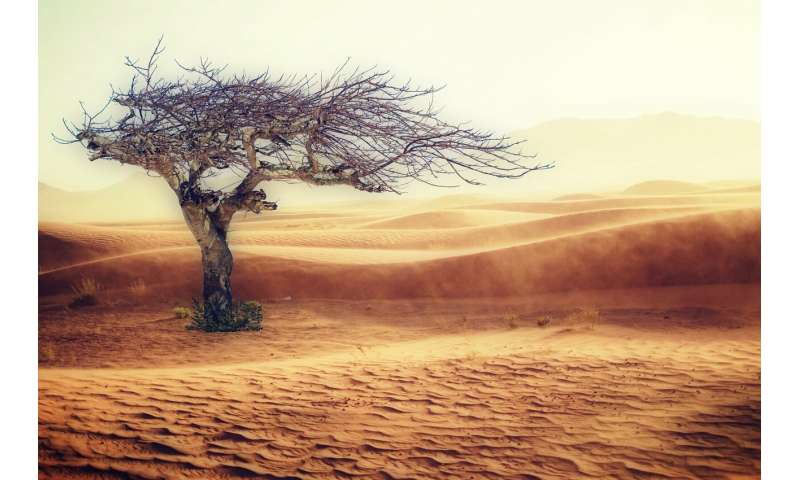#How climate change affects vegetation productivity restoration in Southern China
“#How climate change affects vegetation productivity restoration in Southern China”

China has implemented large-scale eco-afforestation projects in karst areas for mitigating rocky desertification in recent decades.
However, under the combined impact of climate change and human activities, the benefits of karst vegetation productivity restoration and the contributions of the influencing factors are unclear.
A research team led by Prof. Wang Shijie and Prof. Bai Xiaoyong from the Institute of Geochemistry of the Chinese Academy of Sciences has designed eight different scenarios to analyze the impacts of climate change and human activities on vegetation productivity change based on the net primary productivity (NPP) from 2000 to 2015.
The results demonstrated that although the average NPP over the entire vegetation-covered karst (VCK) area exhibited an unremarkable increasing trend from 2000 to 2015, a major decline in NPP was detected in the areas where Normalized Difference Vegetation Index increased.
For the VCK areas, human activities contributed positively to NPP changes, while climate change contributed negatively.
Furthermore, human activities and climate change showed more similar contribution proportion to NPP increasing (48.06% vs 51.94%), but with great difference (31.57% vs 68.43%) for NPP decreasing. Solar radiation was the outweighing climatic factor for NPP reduction.
The researchers found that 39.83% of the NPP reduction areas was attributed to the accelerating consumption of autotrophic respiration (Ra) and the rest (60.17%) was due to the rapid decline of The Gross Primary Productivity (GPP).
On the contrary, for the NPP growth regions, 93.41% of the regions was attributed to the result of GPP accumulation more quickly than Ra consumption. Only 6.59% of those regions was mainly due to the decrease in endogenous respiratory consumption caused by changes in rainfall and temperature, which led to a cumulative increase in NPP.
“In the karst area of south China, climate change might weaken the positive impact of human activities on vegetation productivity restoration,” said Prof. Bai.
The researchers discovered that the regions with the greater negative contribution of climate change to NPP changes were also the regions with the greater positive contribution of human activities.
In southern karst area, human activities showed a positive impact (59.07%) on NPP increasing. However, the negative contribution from climate change (70.72%) due to the rapid and constant decline of solar radiation completely counteracted this, leading to a greater NPP decrease.
This study quantified the impacts of climate change and human activities on vegetation productivity in karst areas of China on pixel scale, emphasized the importance of negative effect from climate change on karst vegetation productivity change, and provided location guidance for further implementation of ecological protection projects in southern China.
The study was published in Ecological Indicators.
More information:
Luhua Wu et al. Climate change weakens the positive effect of human activities on karst vegetation productivity restoration in southern China, Ecological Indicators (2020). DOI: 10.1016/j.ecolind.2020.106392
How climate change affects vegetation productivity restoration in Southern China (2020, June 24)
retrieved 24 June 2020
from https://phys.org/news/2020-06-climate-affects-vegetation-productivity-southern.html
This document is subject to copyright. Apart from any fair dealing for the purpose of private study or research, no
part may be reproduced without the written permission. The content is provided for information purposes only.
If you want to read more Like this articles, you can visit our Science category.
if you want to watch Movies or Tv Shows go to Dizi.BuradaBiliyorum.Com for forums sites go to Forum.BuradaBiliyorum.Com




